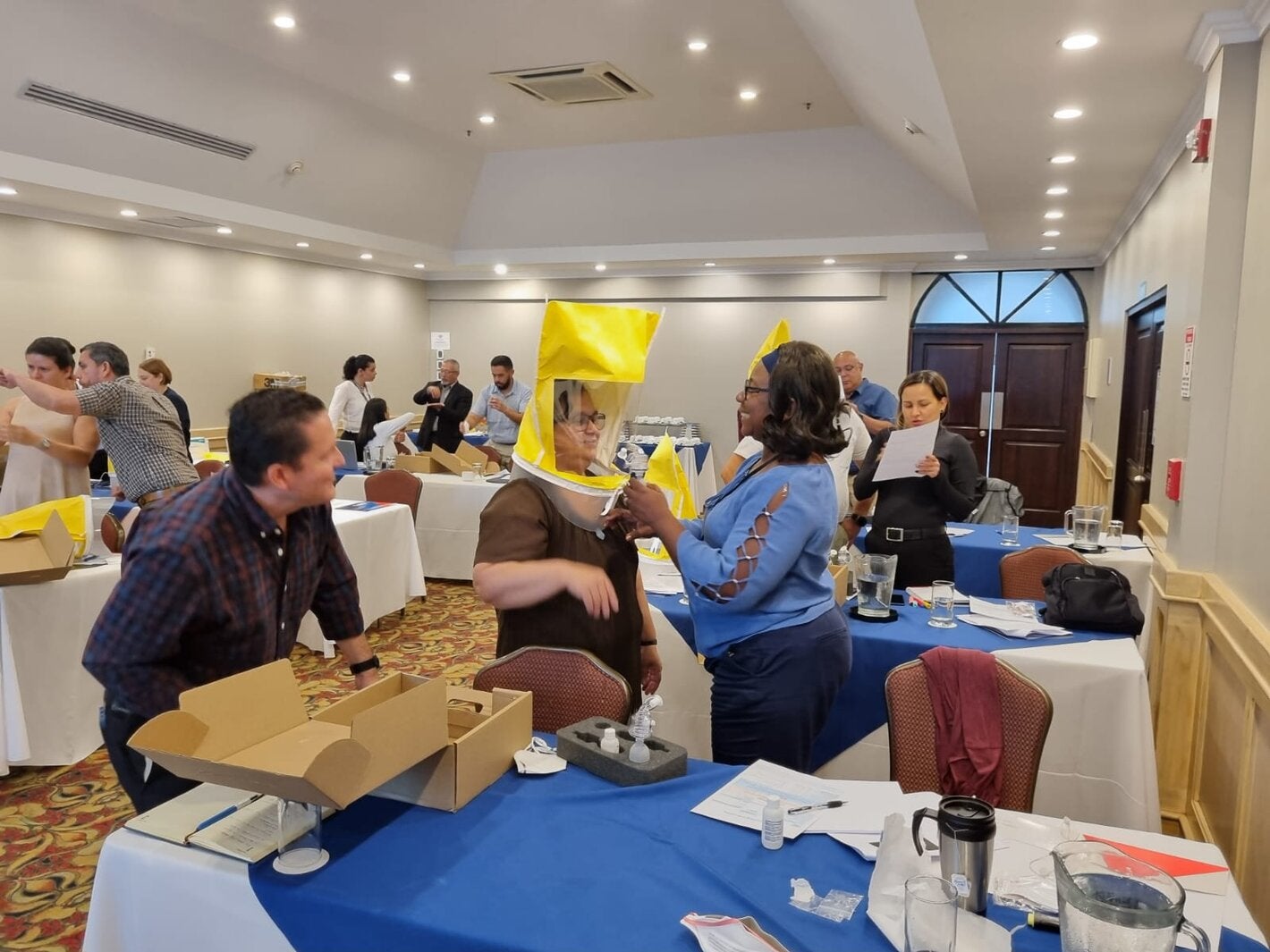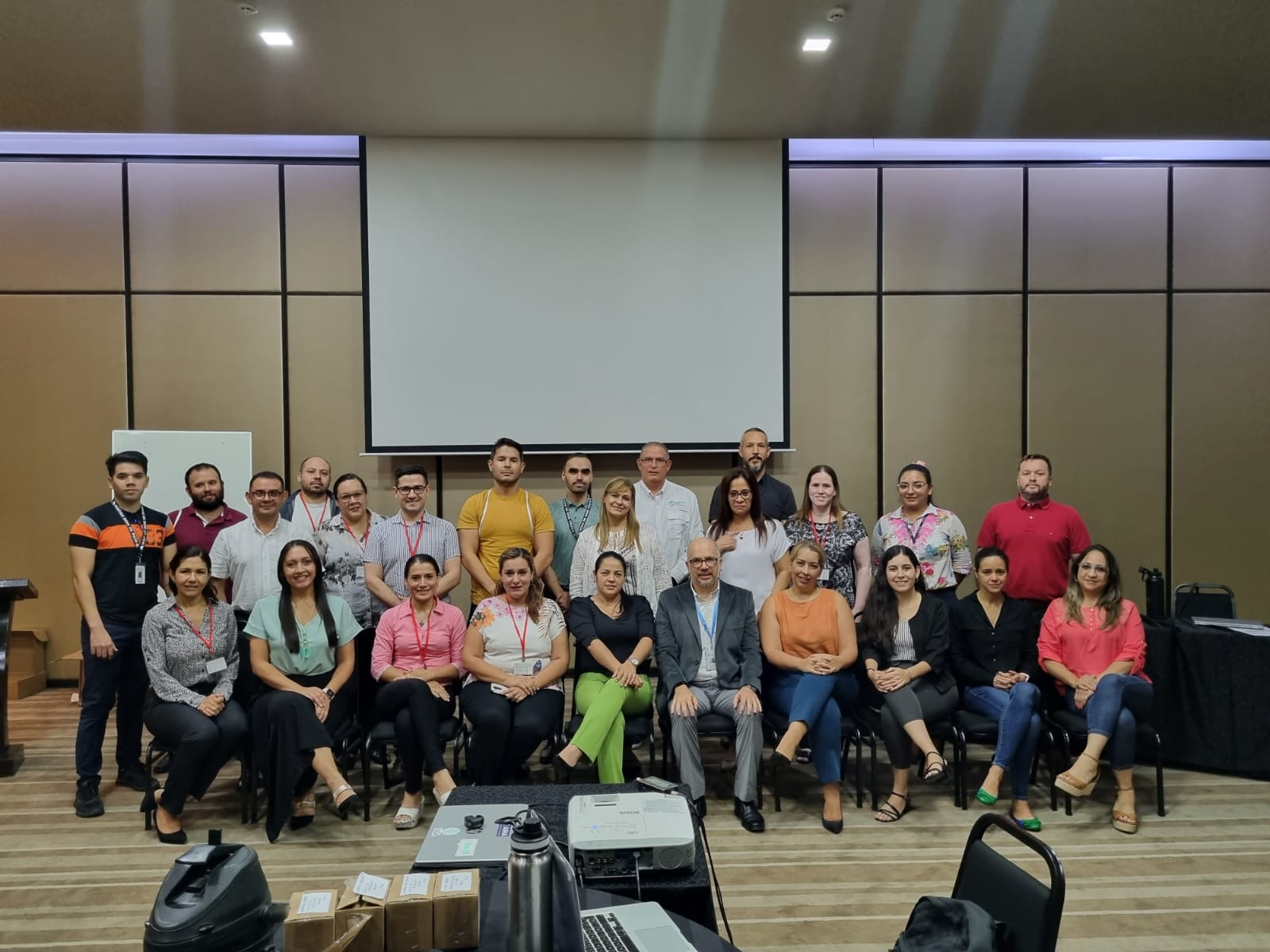
23 May 2024. Washington, D.C. (PAHO)- In a collaborative effort between the Pan American Health Organization (PAHO/WHO) and the University of Maryland (a WHO collaborating centre) with the support of the United Sates Centers for Disease Control and Prevention (US-CDC), representatives from 10 Latin American and Caribbean countries (Belize, Bolivia, Costa Rica, Dominica, Ecuador, El Salvador, Jamaica, Paraguay, The Bahamas, and The Turks and Caicos Islands), received training to support the roll-out of the respiratory protection program implementation.
The Respiratory Protection Program for Healthcare Workers aims to implement control measures to mitigate respiratory risks. The program has in-person and virtual training; Additionally, the training uses a manual, which is the first respiratory protection program manual published by PAHO, and offers guidance on how to implement the program successfully at the national and institutional levels. This program includes a) necessary infrastructure, b) human and material resources needed to support the program in different health care settings; c) selection criteria for proper respiratory protection equipment, including guidance on technical standards and quantities needed, d) fit testing procedures, e) training healthcare workers in equipment use, and monitoring equipment implementation. In addition to training, each country was provided with equipment for the program roll-out.
PAHO consultants Mr. Jose Espino, Dr. Sandra Milena Corredor, Mrs. Kathryn Johnston, and Ms. Marissa George facilitated the training of the 207 healthcare workers participating in the training, which overall objective was to build in-country and healthcare facilities’s capacity for respiratory protection programs with an emphasis on respiratory device use within IPC programs. This training is critical given the risk evidenced by the COVID-19 pandemic of the transmission of respiratory illnesses in healthcare settings, adversely affecting patients and healthcare workers alike. Implementing respiratory protection programs in these countries will increase the protection of healthcare workers from respiratory exposure to potentially harmful chemical and physical agents, including future surges in COVID-19 or other respiratory illnesses.
The participating countries would implement the program, and PAHO would continue to monitor and evaluate the results.
Also, to ensure continuity in training and reinforce learning, there is virtual training on the key components of respiratory protection programs and methods for program implementation and follow-up in health care settings. It is developed in English and Spanish and will be made available soon.
The respiratory protection course is available in Spanish at the PAHO Virtual Campus for Public Health. There are 7506 participants enrolled, of whom 4399 have been certified.




